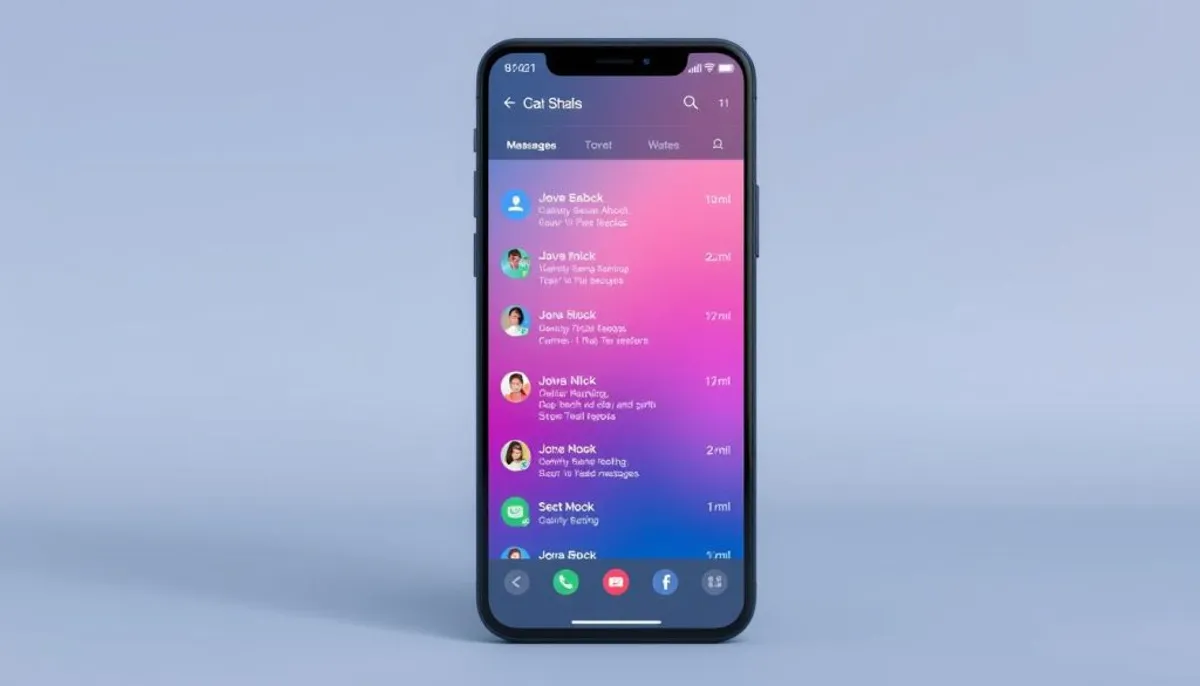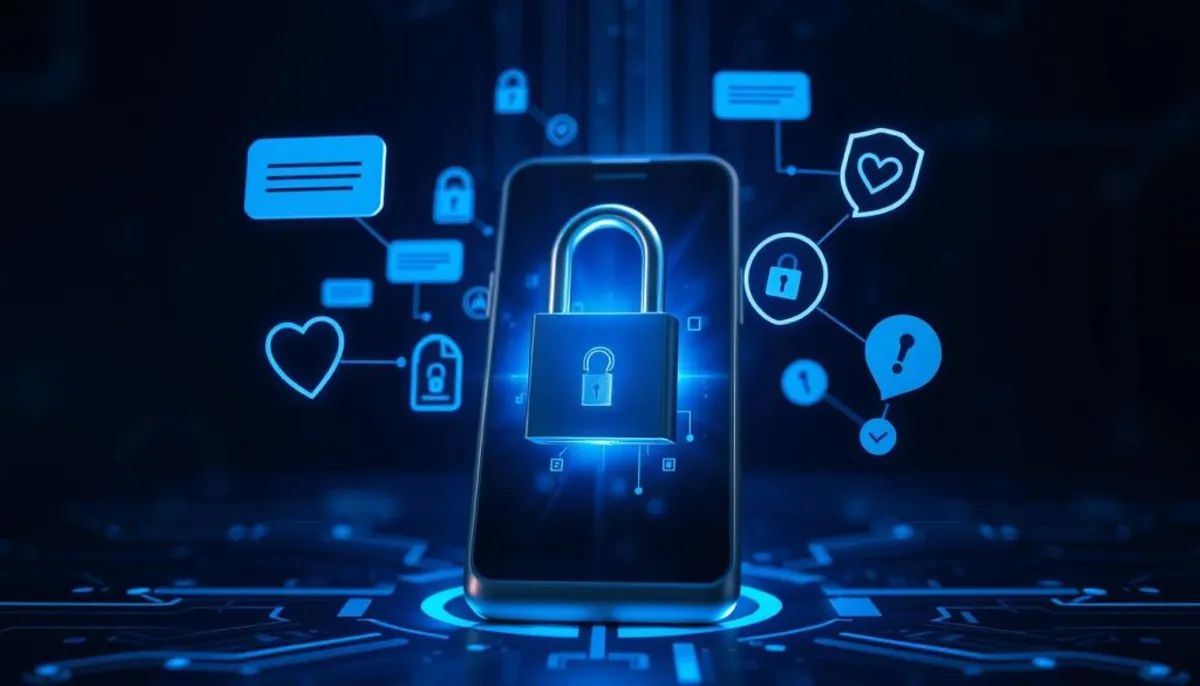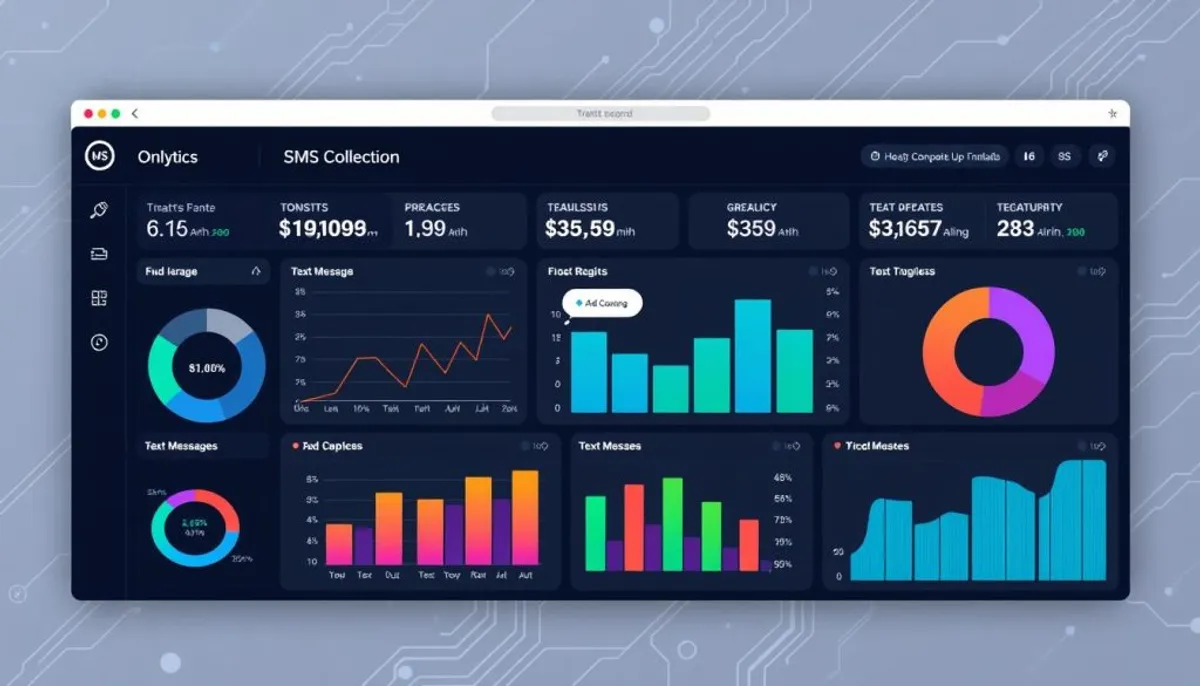Are you weary of navigating through a disorganized inbox? The SMS Management app is poised to transform your text message harvesting journey. Since its inception on June 22, 2020, this free application has attracted thousands of active users globally. It has garnered a commendable 4.4-star rating from 12.6K reviews.
Conceived by Tarik Nasuhoglu, this mobile message aggregation tool is distinguished by its unique design and intuitive interface. The latest version, 2.5.2, released in January 2022, is replete with functionalities to simplify your SMS collection process.

The app’s vast library houses over 50,000 SMS messages, with 10,000 added in the recent update. It offers 50+ categories, spanning from friendship and love to jokes and birthday wishes. Users commend its diverse offerings, positioning it as a premier resource for all messaging requirements.
What distinguishes this app is its unwavering dedication to user privacy. It eschews data collection, with the developer affirming they cannot access your messages due to Apple’s stringent policies. This emphasis on privacy, coupled with its comprehensive features, has garnered widespread acclaim from its users.
Key Takeaways
- Free SMS Management app with 4.4-star rating
- Over 50,000 messages in 50+ categories
- Strong focus on user privacy and data protection
- Customizable filtering options for unwanted messages
- No ads or subscriptions, supported by voluntary donations
- Regular updates and responsive developer support
Understanding SMS Management Fundamentals
SMS management has become essential as text messaging remains a dominant form of communication. In 2019, Americans sent an astonishing 2.1 trillion text messages, averaging 6,400 texts per person. With businesses contributing billions to this total, efficient SMS management is paramount.
What is SMS Management Software
SMS management software is a tool designed for bulk SMS gathering and organization. It aids businesses in handling large volumes of text messages, streamlining communication processes. This software is vital for companies dealing with customer inquiries, notifications, and promotional campaigns.
Key Features of Message Organization
Effective SMS management solutions offer several key features:
- Automated SMS scraping for data collection
- Message filtering and sorting
- Custom rule creation for message handling
- Blacklist and whitelist management
These features enable businesses to efficiently manage their SMS communications, reducing manual effort and enhancing response times.
Benefits of Structured Text Message Management
Implementing structured SMS management yields numerous advantages:
- Improved customer experience through faster response times
- Enhanced operational efficiency with automated processes
- Better data collection and analysis for informed decision-making
- Increased revenue through targeted promotional campaigns
By leveraging these benefits, businesses can significantly enhance their communication strategies and overall performance.
The Evolution of Text Message Organization
Text messaging has undergone a transformative journey since its debut in 1992. The initial SMS, a humble “Merry Christmas” message, heralded a new era in communication. As mobile phones proliferated in the 2000s, SMS usage surged, prompting telecoms to introduce texting plans.
The 2010s brought forth significant strides in texting technology. The advent of Multimedia Messaging Service (MMS) and emojis significantly broadened the expressive scope of text messages. This period also saw the emergence of cellphone message extraction techniques, facilitating the efficient management of burgeoning message collections.
SMS data mining emerged as a pivotal tool for businesses, enabling them to dissect customer communication patterns and preferences. The introduction of AI-powered chatbots further transformed text-based interactions, automating customer service and offering immediate responses.
Rich Communication Services (RCS) emerged as a new benchmark, introducing features such as read receipts and end-to-end encryption. These innovations addressed escalating concerns regarding privacy and data security in SMS management.
| Year | Milestone |
|---|---|
| 1992 | First SMS sent |
| 2000s | Widespread SMS adoption |
| 2010 | Introduction of emojis and MMS |
| 2012 | Rise of instant messaging apps |
| 2021 | AI integration in SMS messaging |
Today, SMS continues to be a vital communication medium, with approximately 5 billion users globally. The trajectory of text message organization points towards a future replete with richer multimedia content, AI-driven conversations, and enhanced security measures. This ensures SMS remains a cornerstone in our digital landscape.
SMS Collection: Essential Tools and Technologies
SMS collection has evolved into a vital component of contemporary business communication. The proliferation of mobile text accumulation necessitates the utilization of advanced tools for effective management. This segment delves into the pivotal technologies facilitating large-scale SMS acquisition and processing.
Mobile Message Aggregation Systems
At the core of SMS collection lie mobile message aggregation systems. These tools amalgamate texts from diverse sources, simplifying the management of voluminous messages. By centralizing communication, enterprises can optimize their operations and enhance customer interaction.
Automated Message Sorting Solutions
For the management of extensive SMS acquisition, automated sorting solutions are indispensable. These systems employ pre-defined criteria or AI to categorize incoming texts, ensuring efficient organization. This automation not only saves time but also diminishes errors in message handling.
Text Data Processing Capabilities
Advanced text data processing is imperative for extracting value from mobile text accumulation. These functionalities empower businesses to dissect message content, track trends, and derive insights from their SMS interactions.
| Feature | Benefit | Impact |
|---|---|---|
| Message Aggregation | Centralized Management | Improved Efficiency |
| Automated Sorting | Time Saving | Reduced Errors |
| Data Processing | Insightful Analysis | Enhanced Decision Making |
These tools constitute the bedrock of effective SMS management, empowering businesses to leverage the potency of text messaging for enhanced communication and customer service.
Streamlining Business Communication with ti3 Platform
The ti3 platform is a game-changer for business communication, simplifying the tasks of mass SMS compilation and SMS collection. It addresses common hurdles faced by companies, notably in managing overdue payments and client interactions.
Automated Payment Reminders
Ti3’s automated payment reminder system tackles a major issue: 49% of invoices from US businesses become overdue. By sending timely reminders, it helps cut down the 30% of unpaid bills that need at least three reminders for settlement.
Client Communication Management
Effective client communication is vital for business expansion. Ti3 streamlines this process, potentially reducing the 65% of businesses that spend 14 hours weekly on payment collection tasks. Its SMS collection features enable swift and effective client outreach.
Debt Collection Automation Features
Ti3’s debt collection automation tackles the 60% of SMBs facing cash flow issues due to late payments. It offers a cost-effective alternative to traditional agencies, maintaining positive client relationships while enhancing collection rates.
| Manual Processing | Ti3 Automated System |
|---|---|
| 30+ days average payment time | 14 days average payment time |
| 54% of small businesses plagued by unpaid invoices | Significantly reduced unpaid invoices |
| 33% of invoices overdue by a month | Fewer overdue invoices with timely reminders |
By utilizing ti3’s mass SMS compilation capabilities, businesses can manage client communications, automate payment reminders, and streamline debt collection processes. This leads to better cash flow and growth opportunities.
Advanced Features for Message Organization
Text message harvesting and mobile message aggregation have advanced significantly. Today’s SMS management tools now offer sophisticated features for organizing messages efficiently.
Customizable filtering rules enable you to sort incoming texts by sender, content, or type. This allows for easy separation of personal messages from business communications or promotions.
Automated categorization is a significant advancement. It employs smart algorithms to group similar messages, saving time and maintaining a tidy inbox. For instance, it can automatically sort appointment reminders, payment notifications, and promotional offers into distinct folders.
Intelligent spam detection is a critical feature in modern text message harvesting systems. These tools learn from your behavior to identify and filter out unwanted messages, ensuring your inbox remains clean and secure.
Some mobile message aggregation platforms now offer message threading. This feature groups related messages together, facilitating easier conversation tracking and important information management.
Priority inbox features are designed to focus your attention on what’s most important. They highlight key messages based on your preferences and past interactions, ensuring you never miss critical communications.
Integration with other communication platforms is becoming more prevalent. This allows for comprehensive message management across various channels, streamlining your overall communication strategy.
Security and Privacy in SMS Management
In the realm of bulk SMS gathering and automated SMS scraping, security and privacy are of utmost importance. With approximately 5 billion individuals sending texts daily, safeguarding this immense data is imperative.

Data Protection Measures
Effective SMS management systems implement stringent data protection measures. Encryption is fundamental, as standard text messages lack encryption by default. This makes them susceptible to interception, potentially revealing sensitive information. Secure platforms employ advanced encryption protocols, such as SSL, to protect personal data during transmission and storage.
Compliance with Privacy Regulations
SMS management tools must strictly adhere to privacy regulations. This includes compliance with TCPA and CAN-SPAM guidelines. For businesses involved in bulk SMS gathering, understanding these compliance standards is crucial. Many platforms, including SMS Enterprise, collect personal information like names, addresses, and phone numbers. They also gather anonymous demographic data and analyze user behavior to enhance services.
Secure Message Storage Protocols
Implementing secure message storage protocols is essential for safeguarding user data. This involves limiting access to information and employing strong access controls. Key practices include:
- Regular security audits
- Implementing multi-factor authentication
- Using secure servers for data storage
- Regularly updating security measures
By focusing on these security aspects, SMS management systems can guarantee the safety of user data in the dynamic landscape of automated SMS scraping and bulk messaging.
Implementing Message Filtering Systems
Message filtering systems are pivotal in the realms of sms data mining and cellphone message extraction. They facilitate the management of SMS collections by efficiently sorting, categorizing, and filtering incoming messages.
Spam Detection and Prevention
Spam detection algorithms scrutinize message content to pinpoint unwanted texts. Common spam triggers include phrases such as “Save up to,” “Free preview,” and “Risk-free.” To circumvent carrier filtering, it is advisable to keep messages concise, employ branded links, and tailor content to the recipient.
Custom Filter Rules Creation
Users can establish specific criteria for sorting incoming texts. This capability enhances cellphone message extraction by allowing for customization based on individual preferences. Filters can be configured to organize messages by sender, content, or time of receipt.
Blacklist and Whitelist Management
Blacklist and whitelist features empower users to manage their SMS inbox. Blacklists block messages from specific senders, while whitelists ensure that critical messages are always received. This management tool is crucial for effective sms data mining.
| Filter Type | Function | Benefit |
|---|---|---|
| Spam Detection | Identifies unwanted messages | Reduces inbox clutter |
| Custom Rules | Sorts messages based on criteria | Improves organization |
| Blacklist/Whitelist | Controls message reception | Enhances communication efficiency |
By integrating these filtering systems, businesses can optimize their SMS management. This leads to improved communication efficiency and adherence to regulations like the Telephone Consumer Protection Act (TCPA).
Message Backup and Recovery Solutions
In the realm of mobile text accumulation, safeguarding your messages is paramount. Modern SMS management systems provide robust backup and recovery solutions. These features are designed to safeguard your communications against device loss or system failures.
Many apps now support large-scale SMS acquisition, enabling users to back up both text and multimedia messages. For example, some applications allow users to convert SMS into various formats like PDF, CSV, HTML, or JPG. This facilitates easy archiving and sharing.
Cloud integration has become a standard feature, with apps offering scheduled automatic backups to services like Google Drive, Dropbox, or OneDrive. This ensures your messages are safely stored off-device, ready for recovery when needed.
| Feature | Description | User Benefit |
|---|---|---|
| Format Conversion | Convert SMS to PDF, CSV, HTML, JPG | Easy archiving and sharing |
| Cloud Backup | Automatic backups to Google Drive, Dropbox, OneDrive | Off-device storage for added security |
| Restore Capability | Restore messages to new devices | Seamless transition when upgrading phones |
| RCS Support | Backup for advanced messaging features | Future-proof message preservation |
While these solutions offer peace of mind, users should be aware of potential issues. Some apps may have limitations, such as only restoring backups made by the same application. It’s also important to review the app’s data privacy practices, as some may share app activity and performance data with third parties.
Integration with Business Systems
SMS collection and mass SMS compilation are becoming essential for businesses. Integrating SMS management systems with other business tools can significantly enhance efficiency and customer communication.
CRM Integration Capabilities
Connecting SMS systems with Customer Relationship Management (CRM) software enables seamless data synchronization. This integration allows businesses to monitor customer interactions across various channels, offering a comprehensive view of the customer journey.
Payment Processing Systems
Integrating SMS with payment systems facilitates quick, secure transactions. Customers can make payments via text, enhancing convenience and increasing sales. This feature is notably beneficial for businesses sending payment reminders or processing recurring payments.
Analytics and Reporting Tools
Combining SMS data with analytics tools provides invaluable insights. Businesses can analyze message trends, response rates, and customer engagement patterns. These insights are crucial for developing more effective communication strategies.

- Businesses are 209% more likely to get a response through SMS than email or phone
- Consumers typically reply to SMS in under 90 seconds
- SMS messages have a 100% received rate, outperforming promotional emails
By integrating SMS collection with business systems, companies can harness these advantages to enhance customer engagement, streamline operations, and drive growth. The future of business communication is here, and it’s in your pocket.
Best Practices for SMS Organization
In the 2020s, effective text message harvesting and mobile message aggregation are paramount for businesses. With 90% of individuals checking their texts within 3 minutes, organizing SMS is imperative. Let’s dive into essential practices for efficient SMS management.
Regular inbox cleaning is a must. Establish a system to archive vital messages and delete the rest. This approach maintains storage efficiency while ensuring critical information remains accessible.
Utilize folders or tags for categorizing messages. This method improves text message harvesting, facilitating the retrieval of specific conversations. Consider categorizing messages into folders like “Urgent,” “Work,” or “Personal” for swift sorting.
Implement automated filters for common message types. This step in mobile message aggregation saves time and ensures consistent organization. Set up rules to automatically sort messages based on sender, keywords, or other criteria.
- Use favorites or pinned conversations for quick access to important threads
- Perform regular backups to prevent data loss
- Review and update filtering rules periodically
Remember, SMS marketing necessitates explicit consent. Implement a double opt-in process for enhanced compliance protection. Ensure it’s easy for subscribers to opt in and out of your SMS list, respecting their preferences.
| Practice | Benefit |
|---|---|
| Short, focused messages | Higher click rates |
| Single call-to-action | Improved conversion |
| Personalized content | Better engagement |
| List segmentation | Tailored messaging |
By adhering to these best practices, you’ll significantly improve your text message harvesting and mobile message aggregation efforts. This will lead to more effective SMS management and marketing strategies.
Conclusion
SMS collection and bulk SMS gathering have become indispensable in today’s communication landscape. Platforms like ti3 provide advanced solutions for text message management, enhancing business efficiency and privacy. These systems streamline operations, leading to increased productivity.
Statistics highlight SMS’s effectiveness. With 98% of messages opened within minutes, SMS stands out as a powerful communication tool. Its cost-effectiveness, being cheaper than calls or letters, makes it a preferred choice for businesses. This includes debt collection, where SMS proves invaluable.
Yet, navigating the regulatory framework is critical. The TCPA and Regulation F dictate SMS use in debt collection. Adherence to these rules, such as obtaining consent and offering opt-out options, is essential. By using SMS collection tools responsibly, businesses can achieve high response rates and foster positive customer interactions.
As text messaging remains a dominant form of communication, the significance of efficient SMS management tools will escalate. Implementing these solutions enables users and businesses to manage their text message collections effectively. This ensures clear, compliant, and effective communication in our rapidly evolving digital environment.
RelatedRelated articles



